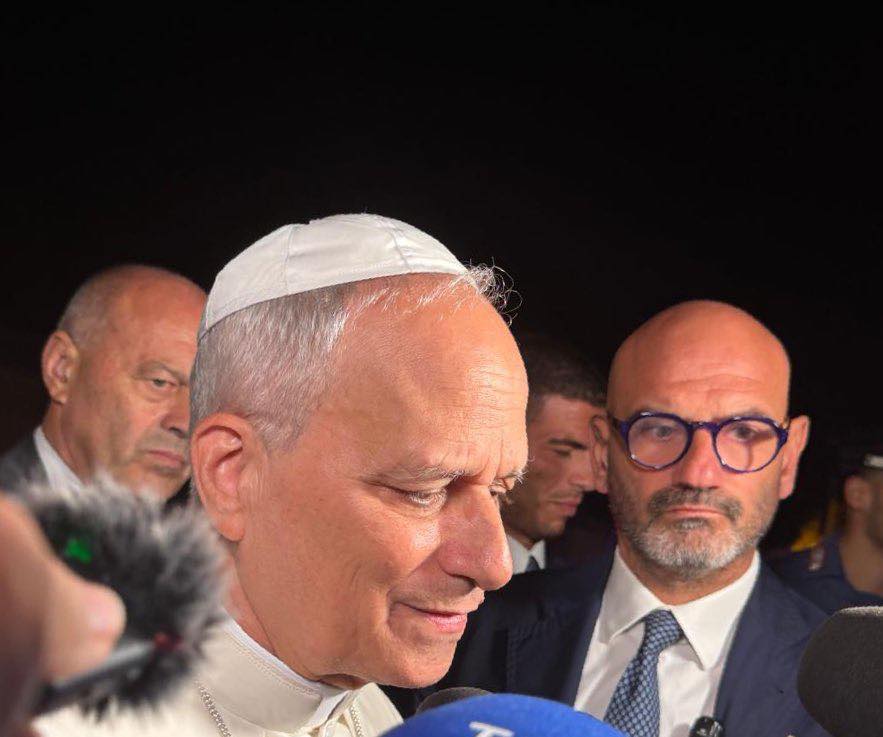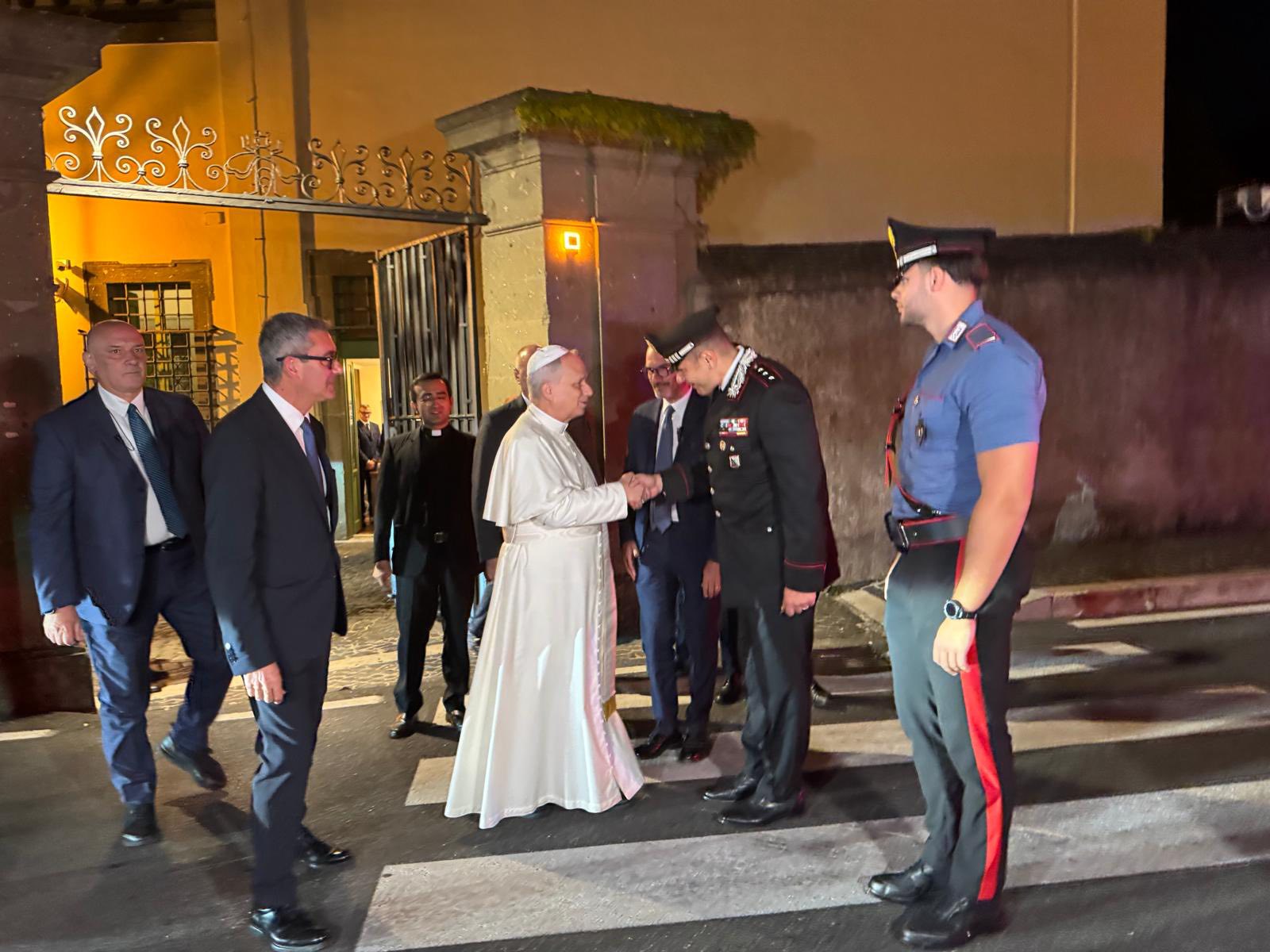(ZENIT News / Rome, 09.18.2025).- As night fell over Lake Albano on September 16, the gates of Villa Barberini in Castel Gandolfo opened quietly, signaling that Pope Leo XIV would soon depart. Yet before slipping into the car that would take him back to Rome, the Pontiff paused once again to greet the press. Smiling, he fielded questions with a candor that has begun to define his encounters with journalists.
One reporter asked about the mass exodus of Palestinians from Gaza. The Pope’s response reflected both pastoral concern and political caution. He confirmed he had spoken by telephone with Father Gabriel Romanelli, pastor of the Holy Family parish in Gaza City. “Many people have nowhere to go,” the Pope said. “Our community there is resisting, but a solution must be found.”

That phone call earlier in the day had been sobering. Father Romanelli described how his parish, despite the intensifying conflict, continues to shelter 450 displaced people. The church distributes food, water, and medicine, and its oratory remains open for children and the elderly. But even prayer is fragile. In a short video posted online, the priest shared a moment from a parish liturgy when the roar of nearby bombardments shattered the silence.
Pope Leo XIV also addressed another crisis weighing on Europe: rising tensions between NATO and Russia. “The Poles are worried, they feel their airspace has been violated,” he noted. “The situation is very tense.” His words underscored a day dominated by the theme of peace, from his morning audience with Karekin II, Catholicos of All Armenians, to his outreach to Gaza.
The Pope’s remarks came as the international spotlight fixed once more on Israel’s military campaign. On the same day, a United Nations investigative commission accused Israel of committing genocide against the Palestinians, citing both the scale of destruction and statements by Israeli officials as evidence of intent. The commission’s report alleged that four of the five acts constituting genocide under international law had been carried out since the conflict erupted after Hamas’s October 7 attack in southern Israel.

Israel rejected the findings outright, dismissing them as “distorted and false” and accusing the UN of bias and of recycling “Hamas propaganda.” But the toll is undeniable: according to Gaza’s health ministry, at least 64,905 people have died in the enclave, while UN-backed experts report famine in Gaza City and widespread collapse of basic infrastructure. With over 90 percent of homes damaged or destroyed, displacement has become nearly universal.
The convergence of these events — the Pope’s anguished concern for Gaza’s Christians, the UN’s grave accusations against Israel, and the mounting anxiety in Europe over Russia and NATO — highlights the global scope of Leo XIV’s diplomatic burden.
Thank you for reading our content. If you would like to receive ZENIT’s daily e-mail news, you can subscribe for free through this link.

